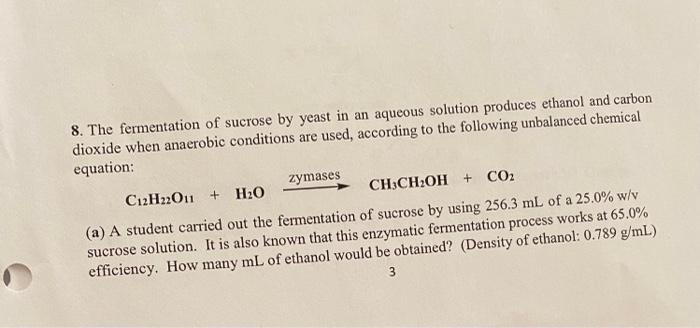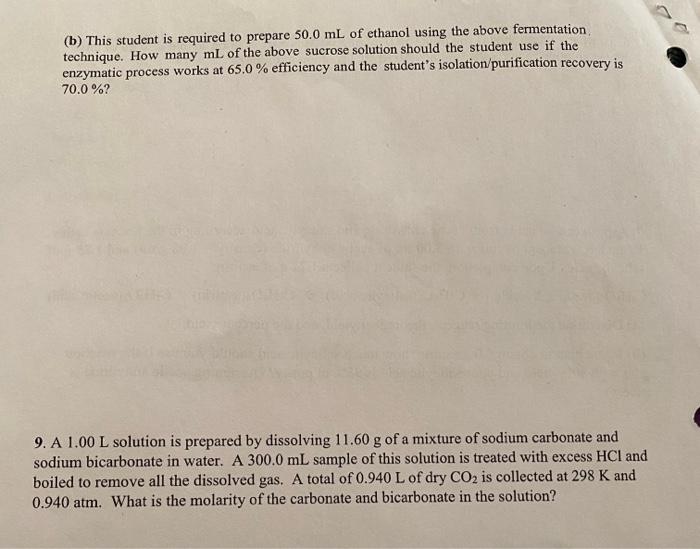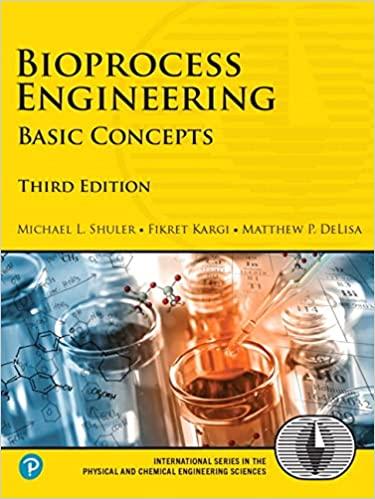Answered step by step
Verified Expert Solution
Question
1 Approved Answer
i need help with questions 8 and 9 8. The fermentation of sucrose by yeast in an aqueous solution produces ethanol and carbon dioxide when
i need help with questions 8 and 9 

8. The fermentation of sucrose by yeast in an aqueous solution produces ethanol and carbon dioxide when anaerobic conditions are used, according to the following unbalanced chemical equation: zymases C12H22011 + H20 CH3CH2OH + CO2 (a) A student carried out the fermentation of sucrose by using 256.3 mL of a 25.0% w/v sucrose solution. It is also known that this enzymatic fermentation process works at 65.0% efficiency. How many mL of ethanol would be obtained? (Density of ethanol: 0.789 g/mL) 3 (b) This student is required to prepare 50.0 mL of ethanol using the above fermentation technique. How many mL of the above sucrose solution should the student use if the enzymatic process works at 65.0% efficiency and the student's isolation/purification recovery is 70.0%? 9. A 1.00 L solution is prepared by dissolving 11.60 g of a mixture of sodium carbonate and sodium bicarbonate in water. A 300.0 mL sample of this solution is treated with excess HCl and boiled to remove all the dissolved gas. A total of 0.940 L of dry CO2 is collected at 298 K and 0.940 atm. What is the molarity of the carbonate and bicarbonate in the solution 

Step by Step Solution
There are 3 Steps involved in it
Step: 1

Get Instant Access to Expert-Tailored Solutions
See step-by-step solutions with expert insights and AI powered tools for academic success
Step: 2

Step: 3

Ace Your Homework with AI
Get the answers you need in no time with our AI-driven, step-by-step assistance
Get Started


